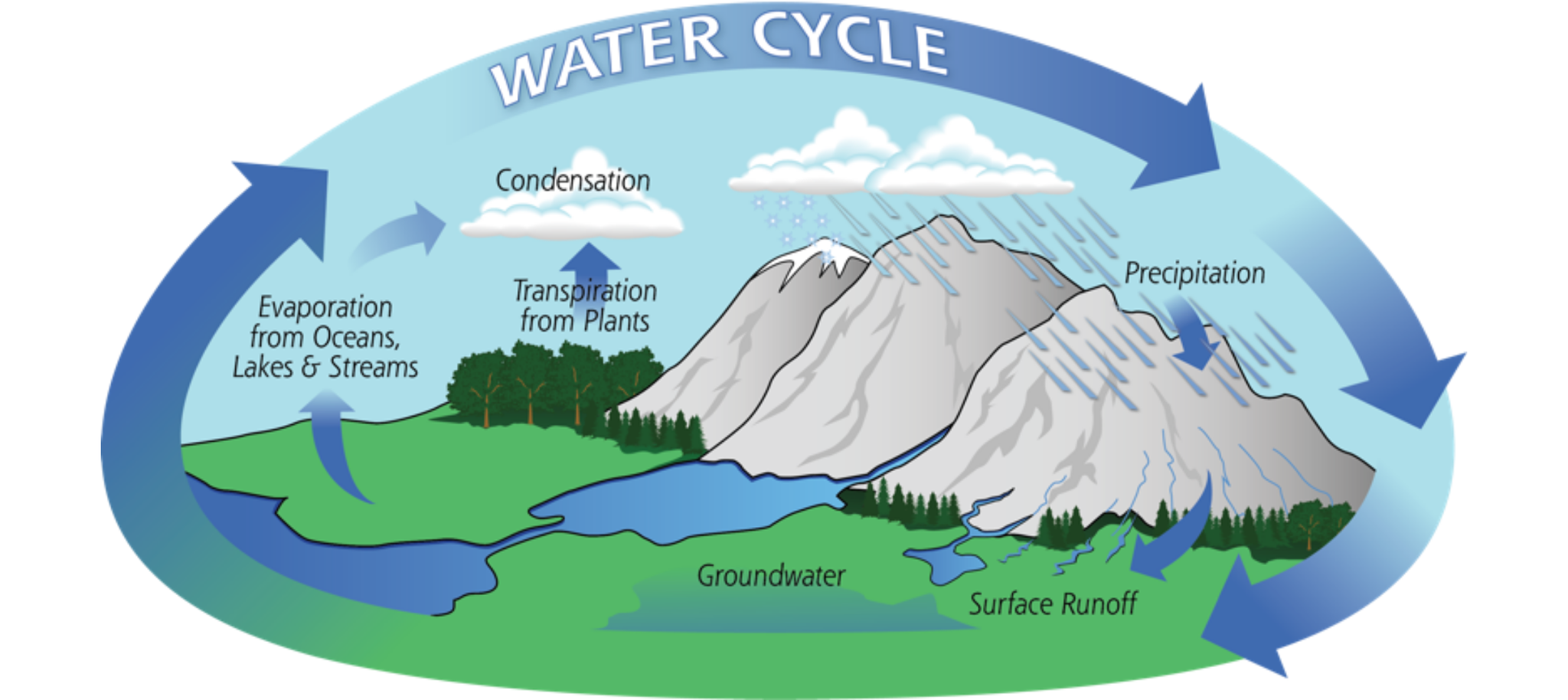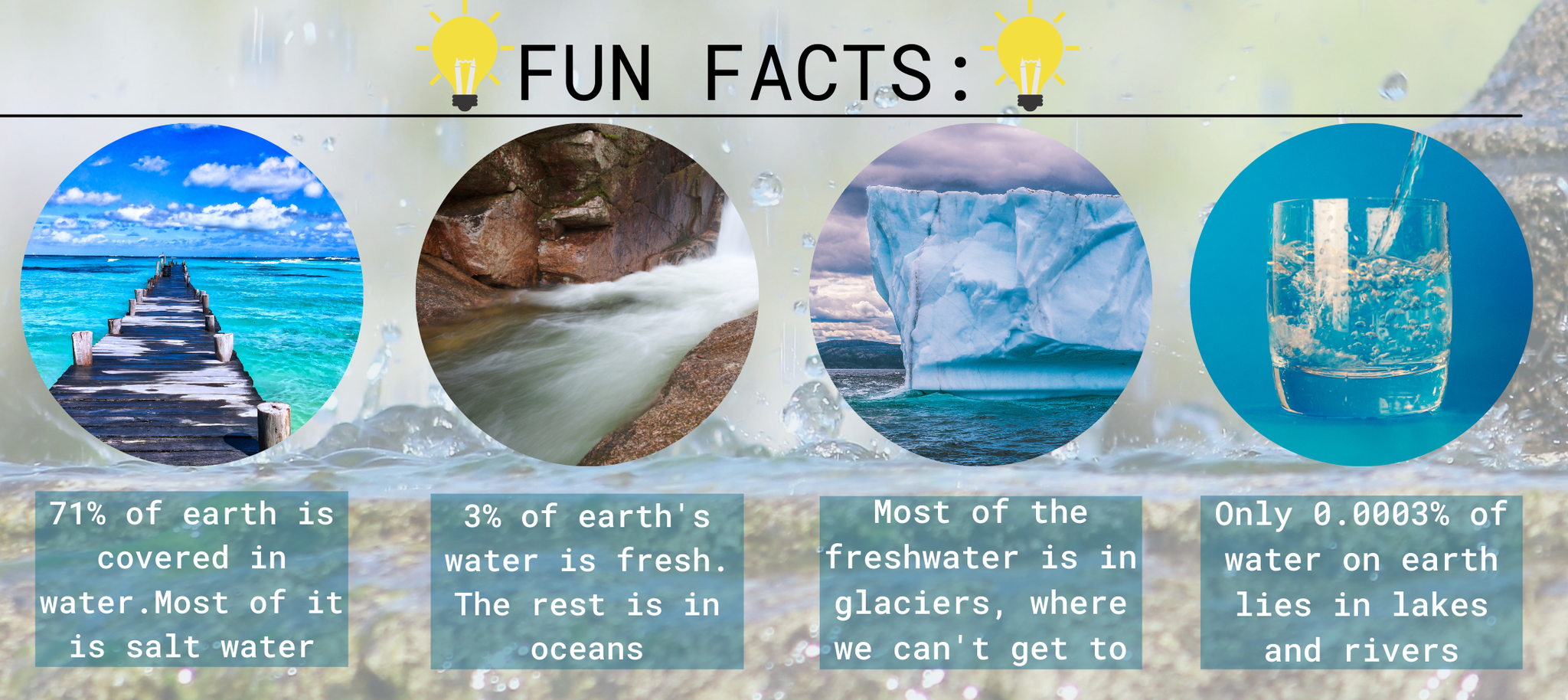Q&A - Ask Away! I'll Answer pt. 8
Spring weather is starting to pick up already which is leaving me less time to answer viewer questions. I still want your questions answered but instead of posting them weekly, I'll be answering your questions bi-weekly. Don't let this deter you from asking them! I still want all your questions answered.
As a reminder, you can submit questions in the comment section of this post or email me directly through the website contact form. You can also send questions through any of my social media platforms. Find me @leahwx11 on Facebook, Twitter, and Instagram. If I miss your question, keep commenting on futures posts! I want ALL your questions answered.
Question - Does ice/freezing rain serve any meteorological purpose?
Yes! Ice and freezing rain are a part of the water cycle, which is what moves water from the ground, into the air, and all around the globe. Precipitation is any liquid or frozen water that eventually becomes too heavy for the cloud to suspend and falls back to the earth. All precipitation that falls is freshwater. This water is essential. Not only does it replenish our rivers, streams, and lakes, but it also waters our plants.

Eventually, the water on the ground returns to the atmosphere. It can do this in several ways. Evaporation occurs when water returns to its vapor state. Water will evaporate from rivers, streams, lakes, and oceans. Water also returns to the air through transpiration from plants.
When water is in the atmosphere, it travels around through storms, fronts, and jet streams. Water movement is important because it distributes drinking water across the globe, and the water cycle transports nutrients, pathogens, and sediments in and out of ecosystems. Putting it bluntly, we couldn't survive without the water cycle.
Once in the air, the water particles eventually form clouds. As the particles continue to grow, we get storms developing. Now, these can be thunderstorms, snowstorms, or even hurricanes. When the droplets get too large, they fall. This precipitation can come as rain, snow, ice, or even hail. The precipitation falls and replenishes the earth.

Fun Facts:
- All those pictures of raindrops you see, they’re lying! Raindrops are not a teardrop shape. Nope. Tiny raindrops are spherical, and bigger raindrops are flatter. Big raindrops have a hamburger or pancake shape.
- While about 71% of the earth is covered in water, we can’t drink most of it. 97% of the water on earth is salty, and no one wants that. This only leaves about 3% suitable for drinking. Water conservation and protecting our natural resources are essential.
- If one inch of rain were to fall evenly on 1 acre of land, it would total over 27,000 gallons of water.
Question - Does snow put nitrogen in the dirt?
Yes! It does. This is known as “poor man’s fertilizer.” While there is not a lot of nitrogen in snow, there are some benefits to local plant life. Snow collects nitrogen when falling through the atmosphere, but the flakes also collect sulfur and other atmospheric particles. Snow is also not the only precipitation that deposits nitrogen in the ground. Rain, hail, sleet, and if you can believe it, lightning, also carry nitrogen.
While nitrogen compounds, such as nitrate, are found in many fertilizers which help our plants grow, too much nitrogen has adverse effects. You have to be careful of using fertilizers and follow the packaging instructions.
In the case of snow or rain, depending on the conditions, the ground or plants may not always reap the benefits. For example, if the ground is frozen, the snowmelt will runoff before the dirt can absorb the nitrogen. If it’s raining and the earth is too saturated, the raindrops carrying nitrogen will also runoff.
As an added tidbit, snow is a great insulator. It protects the ground from wild temperature swings such as freezing and thawing. Thus, protecting the roots of the plants and keeping them from being damaged. Snow also keeps the ground below freezing, which prevents the plants from blooming too early.

0 Comments Add a Comment?